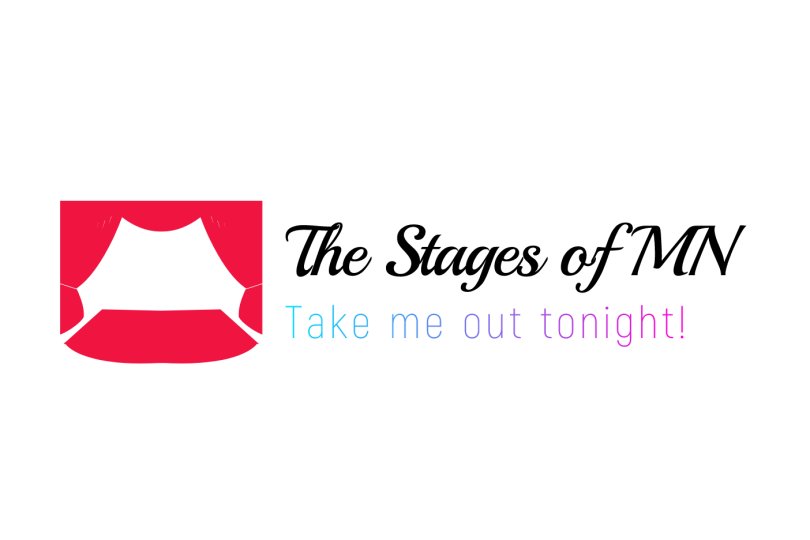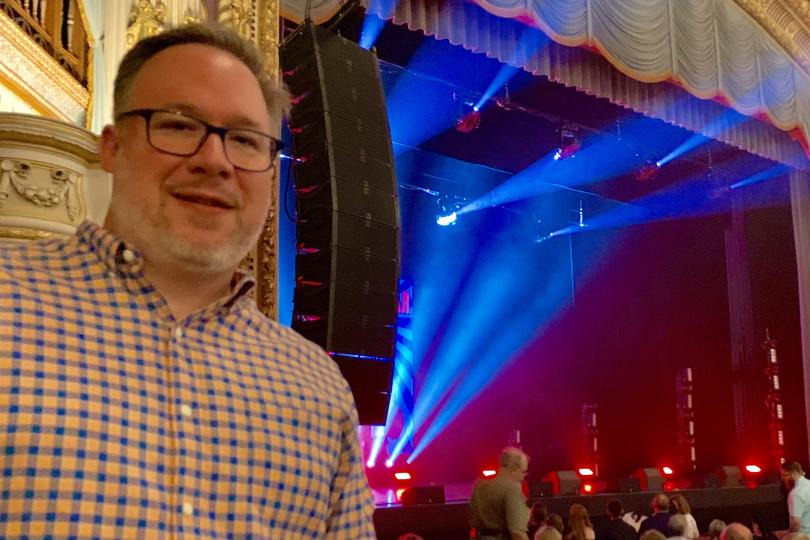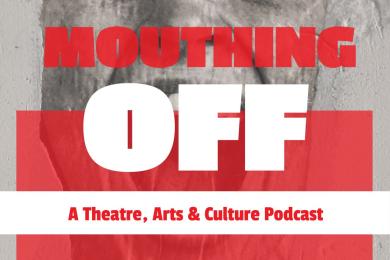"We need audiences more than ever" - Interview with theater blogger Rob Dunkelberger

One of the ways I've envisioned expanding the platform is supporting the work of theater bloggers in MN. In the run up to launching a new site I came across the process of syndicating content. This lets Playlist republish content being produced on other sites, while crediting that original location for search engines.
And so I reached out to a few folks to see if they would be interested in having their content syndicated on Minnesota Playlist. Rob Dunkelberger was one such person. Get to know Rob a little bit based our interview, then check out all of his reviews at his blog The Stage of MN.
I lead with the heart.
DR: What inspired you to start writing reviews and to develop The Stages of MN blog?
RD: When my wife and I first started dating we went to several plays and musicals, it was something that I’ve always remembered about our early days. Because we both brought children to the relationship, getting out to the theater sort of stopped happening once we were past the courtship stage. The weekend we got engaged we had sent the kids off with their other parents and booked four shows. That reminded us how much fun a night at the theater can be and we started to go more frequently and tried to take the kids to at least a couple of shows a year.
There were two shows in particular in the Spring of 2019 that I always look back to as the catalyst for The Stages of MN. They were Be More Chill, produced by Minneapolis Musical Theatre, and Hedwig and the Angry Inch at Theater Latté Da. Both shows were so good that my wife and I went to see them again bringing other folks with us. Hedwig I saw three times. Be More Chill, we only went twice but the second trip, we brought 10 others with us. I also remember being shocked that as great as Be More Chill was, how many seats were empty in the theater. I realized, I wouldn't have been aware of that show myself had it not been for a friend of mine who invited us along. There are so many theater companies in the Twin Cities that until you start engaging with the community, you aren’t really aware of most of them. The other thing I noticed, a lot of the audience was older than I, and I’m at the age where there are almost certainly more years behind me, than ahead.
That stayed with me over the summer and I kept telling people about shows we were seeing and inviting people to join us when we went to the theater. My wife suggested the idea of starting a blog, something at times, I think she’s grown to regret. My original plan was to try and see one show a week. At the time we were season ticket holders at a few different theaters so I thought I’d probably just have to buy tickets to one or two shows a month. The goal was to raise awareness of all the theater that was right under people’s noses. Encourage them to get off their couch now and then and take in some live theater making sure I pointed them towards things they would enjoy, as that's what keeps them going. As I have become more involved in the community, the need to nurture new audiences, particularly ones younger than myself, has become a priority.
DR: Can you describe your personal criteria for evaluating a theatrical performance?
RD: I can’t say that I've formalized a criteria, I’ve certainly developed a formula for the structure of most of my reviews. It’s useful especially on weeks where I have four or five shows, it allows me to get started quickly. A writer I admire once said, “the muse visits during the act of creation, you don’t wait for it to arrive”.
In terms of evaluating a theatrical performance, it’s really based on my emotional response to a piece. I’m more of an emotional than analytical person, and so while I utilize both aspects as I think about what I’ve seen, I lead with the heart. What is of primary importance is letting the reader know what to expect. If I recommend a show because it’s challenging, thought provoking, and makes me think about the world we live in and my place in it, I need to let the reader know that’s what this show does. If I steer people wrong, something worse than me losing a reader happens, I’ve done the opposite of what my goal is. Instead of turning someone on to theater, I’ve turned them away from it.
DR: Can you discuss a particularly memorable experience you had while reviewing a production?
RD: Right before the pandemic shut down theaters around the world, Mixed Blood staged the world premiere of a new musical called Interstate the Musical. I was just starting to feel like I knew what I was doing, I’d been blogging for about six months at this point. I had the opportunity along with a few of my fellow Twin Cities Theater Bloggers (TCTB) to meet the authors Kit Yan and Melissa Li as well as the three young stars of the show. Kit gave me a card which allowed me to download some recordings they had made of some of the songs. My youngest son is transgender and the musical revolves around two characters that are transgender, so going in I had a connection. I attended the show with my son on March 7th 2020. When it ended we immediately looked at our calendars to see when we could see it again.
On March 11th, we went back and brought more friends and family members. We had plans to see it again on March 21st but, that’s when I got word that they were closing early due to the pandemic and that the last performance would be March 14th 2020. George and I were there. I did something I had never done before and haven’t done since, I canceled another show so that I could see Interstate the Musical for a third and final time.
Interstate the Musical is one of my top five favorite musicals of all time. The cast was unbelievable, particularly Sushma Saha who moved me to tears at every performance. I’m so grateful to Kit Yan for giving me that card to download their sample tracks, it’s a way for my son and I to revisit what was a hugely important show to us. It was a great musical about young transgender people. It wasn’t just representation, which is hugely important, it transcended representation. It was brilliant as a musical full stop, that personal connection was just an added benefit for us.
DR: Do you think there is a responsibility for theater critics to consider the socio-political context of a production when writing a review? If so, how do you approach this?
RD: I think it’s important not to ignore those aspects. As a cisgender white male I have to be mindful of my privilege, mindful of the fact that sometimes the shows I’m reviewing are speaking to another experience than the one I’ve lived. I have to remember those are not my stories to tell, but I can be an advocate for empathy. The one thing I can do to make a difference, is point out to my readers the desirability of gender blind and color blind casting. I hope that by addressing it in my reviews and applauding it, I’m firstly preparing the audience and giving their brains time to adapt. When they go to the show, they aren’t wondering why it’s cast as it is, they have already been made aware. They have hopefully been won over by my wonderful prose to the realization that it’s not jarring but super cool. Then with any luck they are going to just focus on the work being presented rather than trying to work out in their minds why The actor playing Emma is named Monty.
When it comes to politics I’m not going to hide what I believe, but I’m also not going to make my theater reviews about that on an ongoing basis. I’m not trying to change the world, I’m trying to get people into theater seats so that the artists working in that medium can change the world. Being overly political in my reviews could turn someone off from going to see something that might change how they think about things. I’m a firm believer that theater is for everyone, there is a show out there for everyone, the problem is getting them into the theater in order to discover that.
DR: What advice would you give to someone who is interested in becoming a theater reviewer?
RD: If you want to start a blog, reach out to the Twin Cities Theater Bloggers on facebook. I had only done a couple of reviews when I was contacted by my colleague who writes Cherry and Spoon*. It seems my original blog name was very similar to an existing blogger and they asked me to consider a new name so as to avoid confusion, then they also asked me to join the group. There is this history of rival newspaper writers and competition between critics that doesn’t exist with theater bloggers. It’s a supportive community of people who share the same desire to get people excited about theater. We also share resources and contacts and give each other the heads up when we see something amazing. Connecting with the TCTB is going to be huge in terms of understanding what’s out there and who to contact.
In terms of writing, write negative reviews, but don’t write mean reviews. If you only write good reviews, what benefit are you to the reader? Bloggers are different from critics, we do something similar but our motivations are slightly different. Critics are paid to review shows, it’s their job. No one pays a theater blogger, we are doing it because we love theater and because we want to build a new generation of theatergoers. In some ways, I’m one man with two guvnors. I serve a purpose to the theaters which hope my reviews will lead people to purchase tickets and that they can use a blurb from my reviews in their own promotions to, that’s right, sell tickets. But, I also serve a purpose to my readers who look to me to tell them what to see and what to avoid. If I don’t do that part of my job, which isn’t really a job, then I’m actually not succeeding in my purpose, which is to grow audiences for theater. If people go to shows they don’t find worthwhile then they are going to stop going. If I want to encourage regular theatergoing then I need to make sure I’m not sending people to things they will regret. This is where the advice to write negative reviews but not mean ones comes in.
Everyone’s tastes are different, it’s important to set the expectations of what each show is. If it doesn’t work for me I need to say that, but I also should allow for the fact that this might be someone else’s idea of a great night at the theater. Creating theater is hard work, getting up and performing in front of strangers and being vulnerable takes courage and skill. Sometimes the choices an artist makes don’t work, and it’s ok, in fact it’s important to say that. It’s also important in a show that doesn’t work, to make note of and mention the things that did. We can steer people away from a show they are not going to enjoy while still encouraging those whose contributions were good.
DR: Post-pandemic people were worried about the ability for MN theater to return in full force, that doesn’t appear to be the case? What do you think has been lost from the forced hiatus, what’s been gained?
RD: We’ve lost some talent, some were forced to change careers to make ends meet. We’ve lost some choice, there are theater companies closing all over the state, companies have canceled parts of their seasons because the money just isn’t there, because the biggest thing we lost was audiences. That’s the one thing that affects all of the others. Without audiences buying tickets, theaters can’t produce shows. Without shows, there are no parts for actors, directors, scene designers, and lighting designers. It’s a domino effect.
Park Square just canceled the rest of their season. Artistry had to cancel half their season. The Zephyr Theatre in Stillwater canceled their season. Hopefully these theaters will come back, but there’s no guarantee. Pre-pandemic we had an embarrassment of riches in terms of theater options which equates to choice, we are losing some of that and with it some talent. We need audiences more than ever, we were always fighting a declining base, but the pandemic hastened it. If you want to live in a city that has a vibrant theater scene, you need to stop binging Netflix and go see some live actors perform for you, in person. If you don't, more theaters will close, more artists will move away or leave the field. That doesn’t make us a better society, it doesn’t make our city a better place to live, there is no upside. Remember if you eliminate all of the actors you are also eliminating a fair amount of a city's wait staff for restaurants.
DR: What are you looking forward to reviewing in the coming months?
RD: I’m looking forward to The Pajama Game at Artistry in Bloomington. It’s their first show back after shutting down to restructure their finances and I think the TCTB is going to try and do something special with them for that. I’m a huge Agatha Christie fan so I’m really looking forward to Murder on the Orient Express at the Guthrie Theater. I’m excited but also saddened for Bright Star at Daleko Arts in New Prague. This will be their final show as the founders have decided it’s time to close the theater. Lastly, I’m very excited for the Minnesota Fringe Festival. Last summer was my first time covering the Fringe Festival and it was an amazing experience, so really looking forward to that.
It wasn’t just representation, which is hugely important, it transcended representation.
* Jill Shafer is one of our other syndicated writers. Check out her interview and her first syndicated review.





